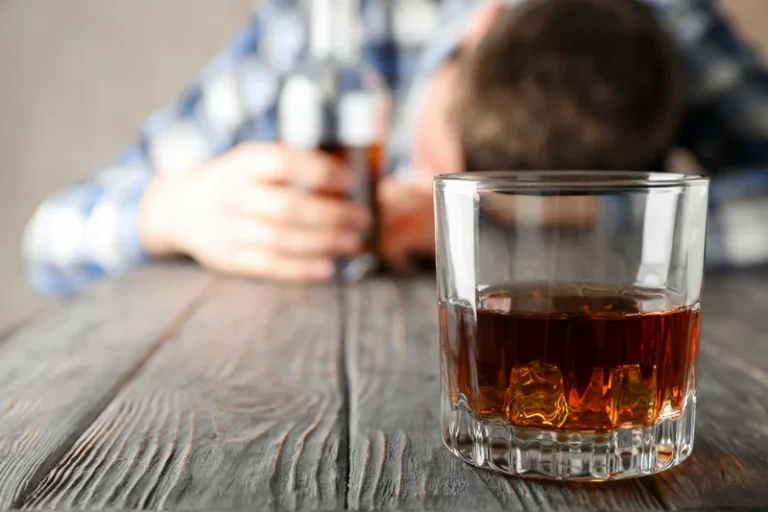
Support groups like Alcoholics Anonymous (AA) and Narcotics Anonymous (NA) are cornerstone resources for people in recovery from substance use disorders. These groups provide a structured, peer-led environment where members can share their experiences, receive support, gain strength, and stay committed to sobriety. Feelings of shame and stigma are some of the most common reasons people don’t seek help or fully commit to recovery. Relapse prevention group activities offer a non-judgmental environment where you can openly share your struggles and celebrate your progress. These group therapy sessions and activities are a great way to build self-confidence that can help you handle stigma in other situations in your life.
- Withdrawal tendencies can develop early in the course of addiction [25] and symptom profiles can vary based on stable intra-individual factors [63], suggesting the involvement of tonic processes.
- Events, specific people (such as friends who are also using), and certain places can put you at a higher risk of relapsing.
- You must accept help from supportive family and friends when you need it.
- Consistent exercise can help reduce negative emotions8 and the chance of relapse.
- Additionally, creative group activities for relapse prevention serve as constructive distractions from cravings and negative thoughts, helping to prevent relapse.
Relapse Prevention and Coping Skills

Recently, Magill and Ray [41] conducted a meta-analysis of 53 controlled trials of CBT for substance use disorders. As noted by the authors, the CBT studies evaluated in their review were based primarily on the RP model [29]. Overall, the results were consistent with the review conducted by Irvin and colleagues, in that the authors concluded that 58% of individuals https://ecosoberhouse.com/ who received CBT had better outcomes than those in comparison conditions. In contrast with the findings of Irvin and colleagues [36], Magill and Ray [41] found that CBT was most effective for individuals with marijuana use disorders. The dynamic model of relapse assumes that relapse can take the form of sudden and unexpected returns to the target behavior.
Using nonlinear methods to model relapse
Clients are encouraged to challenge their thinking by looking at past successes and acknowledging the strengths they bring to recovery [8]. One of the important tasks of therapy is to help individuals redefine fun. Clinical experience has shown that when clients are under stress, they tend to glamorize their past use and think about it longingly. They begin to disqualify the positives they have gained through recovery.
Cognitive Behavioral Therapy for Relapse Prevention

Please keep reading to learn more about how a relapse prevention group activity could benefit you or a loved one in recovery from addiction. Cultivating self-awareness equips individuals with the insight and resilience needed to navigate the ups and downs of recovery with confidence and clarity, reducing the risk of relapse and promoting long-term sobriety. A nutritional and healthy diet also plays an indispensable role in maintaining overall health while helping reduce stress and anxiety, and promote better moods, which aids in preventing relapses. Establishing a daily routine that includes activities like exercise, a healthy diet, and adequate sleep can help stabilize your mood and help with relapse prevention. Despite its major impact, relapse is a common occurrence in the recovery process.
What’s Included in a Relapse Prevention Plan
By reducing our cravings, focusing on the present and engaging in activities that restore some level of calm or bliss, we can completely rewire our brains. How individuals deal with setbacks plays a major role in recovery—and influences the very prospects for full recovery. Many who embark on addiction recovery see it in black-and-white, all-or-nothing terms. They see setbacks as failures because the accompanying disappointment sets off cascades of negative thinking and feeling, on top of the guilt and shame that most already feel about having succumbed to addiction. People can relapse when things are going well if they become overconfident in their ability to manage every kind of situation that can trigger even a momentary desire to use. Or they may be caught by surprise in a situation where others around them are using and not have immediate recourse to recovery support.
A setback can be any behavior that moves an individual closer to physical relapse. Some examples of setbacks are not setting healthy boundaries, not asking for help, not avoiding high-risk situations, and not practicing self-care. A setback does not have to end in relapse to be worthy of discussion relapse prevention skills in therapy. They occur when the person has a window in which they feel they will not get caught. Part of relapse prevention involves rehearsing these situations and developing healthy exit strategies. CBT is a form of psychotherapy that helps identify negative thoughts that lead to substance abuse.
Avoid high-risk situations
Consistent with the tenets of the reformulated RP model, several studies suggest advantages of nonlinear statistical approaches for studying relapse. The empirical literature on relapse in addictions has grown substantially over the past decade. Because the volume and scope of this work precludes an exhaustive review, the following section summarizes a select body of findings reflective of the literature and relevant to RP theory.
It is important to note that these studies were not designed to evaluate specific components of the RP model, nor do these studies explicitly espouse the RP model. Also, many studies have focused solely on pharmacological interventions, and are therefore not directly related to the RP model. However, we review these findings in order to illustrate the scope of initial efforts to include genetic predictors in treatment studies that examine relapse as a clinical outcome.

Care for yourself
More research is needed to understand whether ethno-racial minorities show differential benefit, and if so, whether culturally adapted versions of RP can help address it. Standard Relapse Prevention (RP) has strong empirical support as a helpful intervention for substance use disorder and works about as well as other active substance use disorder treatment approaches. Mindfulness-based Relapse Prevention (MBRP) appears to be as helpful as standard RP; more research is needed to determine whether MBRP offers greater benefit than standard RP. A treatment center will attempt to verify your health insurance benefits and/or necessary authorizations on your behalf. We cannot guarantee payment or verification eligibility as conveyed by your health insurance provider will be accurate and complete.